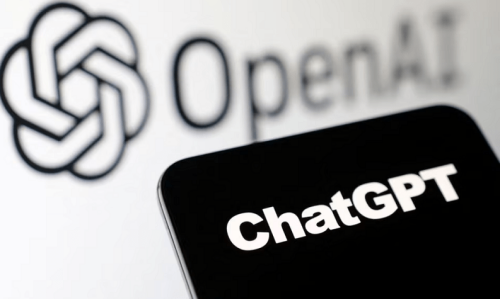KARACHI: How can GPT4 be helpful to a judge in the judicial decision-making process? This cutting-edge question, recently posed by an additional district and sessions judge hearing a juvenile suspect’s bail application, merely hints at people’s fascination with the possibilities that artificial intelligence opens up to professionals in all walks of life.
Although ChatGPT and its counterparts have been dominating headlines across the globe for several months now, Pakistan hasn’t been as quick on the uptake of the chatbot’s potential as researchers and professionals from other parts of the world.
After compiling his order, ADSJ Muhammad Amir Munir of Phalia, in Mandi Bahauddin, had queried ChatGPT on the legal question of whether a juvenile could be entitled to post-arrest bail. While the answers given by the chatbot demonstrated that there is still a long way to go before legal practitioners can come to rely on AI, the judge observed that if judges develop friendship with the chatbot programmes like ChatGPT or Google Bard, and put right questions to it based on available data, facts and circumstances of a case, it can reduce the burden on the human mind by providing relevant and reliable answers.
For context, the ChatGPT chatbot, developed by the research lab OpenAI, is driven by AI technology. It is designed to generate human-like responses to text-based prompts. The language model AI can answer questions and assist with tasks like composing emails, essays, and programme code.
But the judge isn’t the only one trying out what applications the AI chatbot can have for his profession; Dawn reached out to a number of professionals from across different realms — from technology to content writing and design — and asked them whether AI could prove useful in a wide range of disciplines where language plays a key role.
Clues, not answers
Calling it a paradigm shift in large language models, software development engineer Faizan Younus told Dawn that AI chatbots can drastically reduce the time taken to rectify programming errors.
A recent working paper by the Massachusetts Institute of Technology found that professionals using ChatGPT completed their tasks in half the time, while increasing their output by more than 20 per cent.
However, Mr Younus, who works with a Berlin-based company, says that as of right now, ChatGPT can only ‘provide clues’ because it generates responses on the limited amount of data it has been trained on.
“It is too early to form an opinion about emerging technology,” Majid Raza, a peer review coordinator for the Journal of Intercultural Communication from Universiti Utara Malaysia, told Dawn.
“With the help of AI chatbots, one can perform basic research work, such as writing a first draft or determining theories related to the study,” he said.
In his experience, Mr Raza says that AI chatbots are unable to write papers or build complex arguments, as humans can.
According to Yasir Shah, a software solutions provider, the power of AI can be leveraged to create the ‘basic structure’ of a website. “This technology could be particularly helpful for beginner programmers, such as students, in identifying and resolving bugs in their programme code,” he said.
But before programmers start enlisting ChatGPT and its various clones to fix their buggy codes, it is important to note that Stack Overflow — a website for programmers and software developers — has removed the ChatGPT feature because “the average rate of getting correct answers from it is too low, the posting of answers created by chatbot is substantially harmful to the site and to users who are asking and looking for correct answers”.
The visual medium
Last month, Midjourney — an AI image generator — created fake images of former US president Donald Trump being arrested in New York, which went viral.
This gives hope to graphic designers like Karachi-based Munawar Bukhari. Although in his experience, the current iterations of AI Chatbots are not sophisticated enough to create illustrations on command, tools such as Midjourney and the launch of AI art generators by the likes of Adobe and Nvidia could change the design world.
But those who think that AI may be coming for their jobs have little to worry about. “A teacher can elaborate on any topic with as many examples until you are satisfied, with ChatGPT, there may come a point where it generates repetitive responses,” says Usman Javed, a freelance content writer from Lahore.
Published in Dawn, April 12th, 2023













































Dear visitor, the comments section is undergoing an overhaul and will return soon.